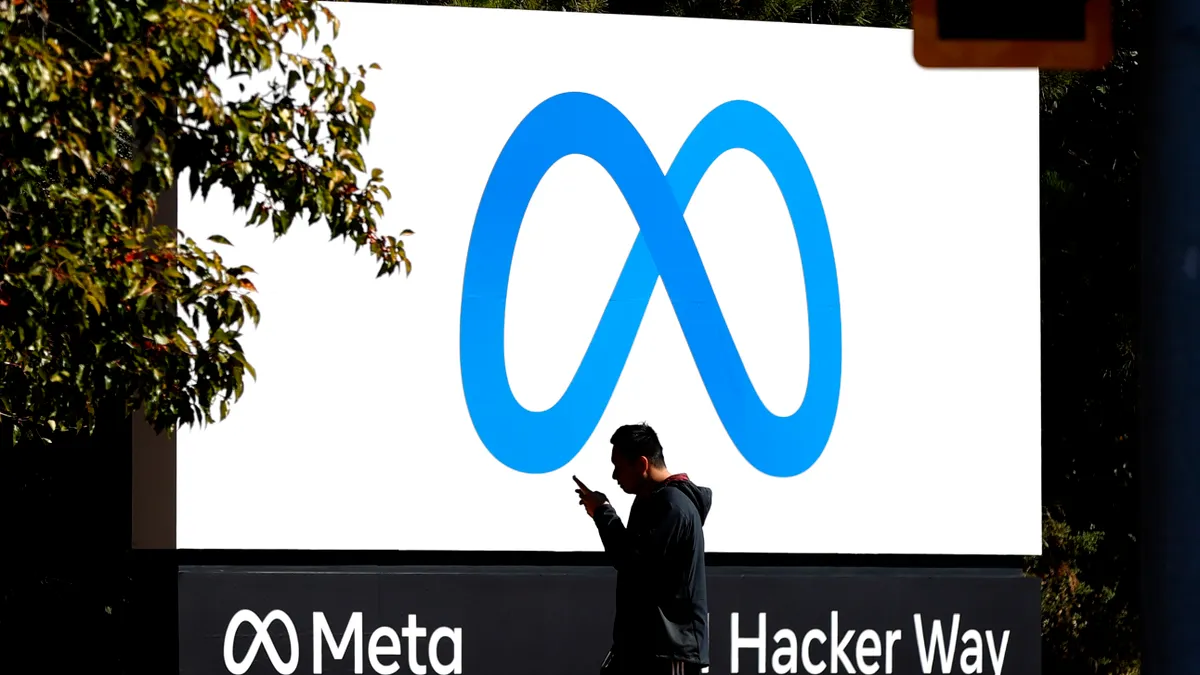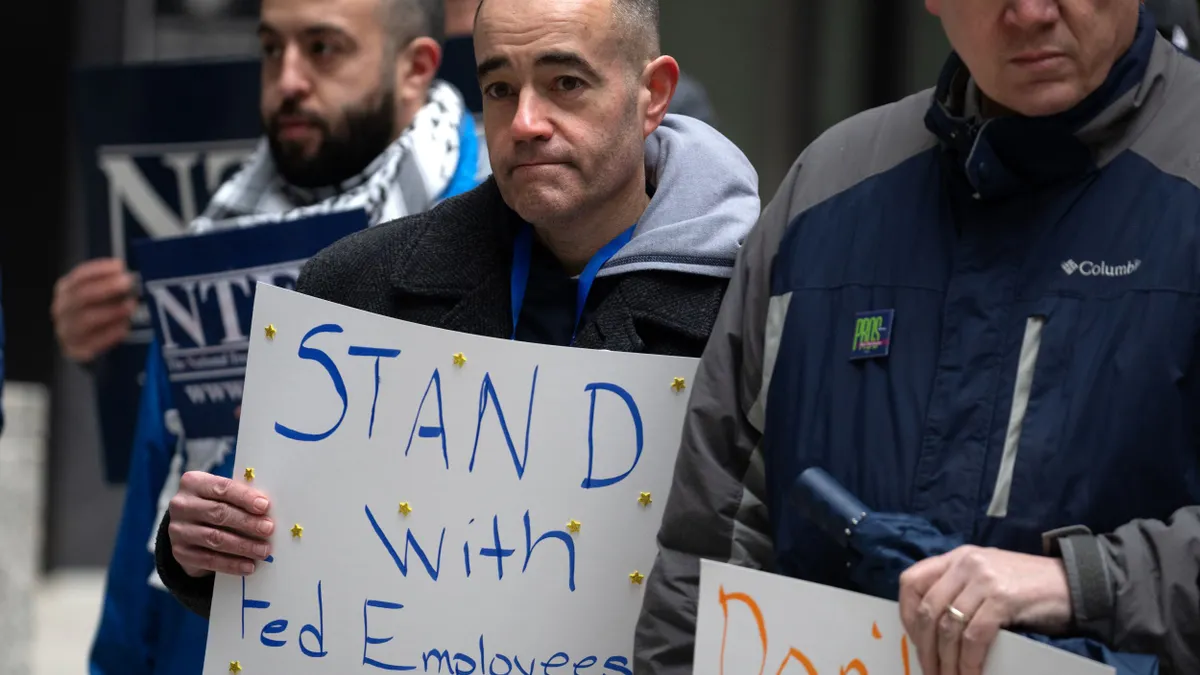In the wake of recent protests and subsequent violence in Charlottesville, a Twitter account with the handle @YesYoureARacist announced its intent to reveal the identities of those who marched in favor of white nationalism in order to, in the short-term, get them fired from their jobs.
Naturally, that got a lot of employers (and employment lawyers) thinking about how they might respond if one of their employees was shown to be one of those participants.
They might have even wondered, can those employees be fired? According to a blog post by Jon Hyman, partner at Meyers Roman Friedberg and Lewis, they certainly can. Hyman's post focused on the firing of a man who was exposed by @YesYoureARacist for participating in the demonstrations in Charlottesville. Hyman's point: There’s perfectly good legal precedence for firing an employee for certain disruptive behaviors, even if done during off-work hours.
There was a time when employers could decide how to manage employee behavior based solely on what happened in the workplace without worrying about the specter of social media blowback. But what was once considered private is now part of a personally curated public broadcast that all, including employers, can see. In an era in which most people share scores of details about themselves publicly every day, the line between what employers can and should look at and what they can ignore has all but disappeared.
If anything, the employer anxiety that rose post-Charlottesville represents a generational shift in the understanding of social media, of privacy and of what behavior is acceptable both inside and outside of work.
HR Dive spoke with Hyman about that transformation and the new context within which employers must consider employee behavior. The conversation below has been edited for style and length.
HR Dive: Obviously we’ve seen a lot of opinions in the days since the events in Charlottesville. I’m curious if anyone asked you any questions or sent any comments about your piece arguing participants in the white nationalist demonstrations could be fired?
Jon Hyman: I’ve gotten feedback on both sides of the issue. I’ve had people saying thanks for saying this, I couldn’t agree with you more. But I have some people that have said private time isn’t an employer’s business, and that this employer — speaking specifically of the one in the blog — has no proof this guy was a neo-Nazi, they just saw a photo of him marching at this rally. Who is this employer to fire him for what he did on his personal time?
It’s so interesting because we all have these Facebook accounts and Instagram accounts and Twitter accounts and we all have these incredibly powerful cameras or phones in our pockets or purses that has turned every person on the planet into a photo and video journalist.
There’s a guy, Jason Seiden, I saw him speak at an HR conference, and he used the term 'profersonal,' which I think he coined. So I have since used that word with attribution to him to explain what I feel, which is that there is no longer the existence of a personal persona and a professional persona because social media has so intertwined everything. Back ten years ago, you punch the time clock, you go home and no one knows what you did at home ... now everyone knows what you do 24/7 because you broadcast it.
It’s frankly not enough to say you are only broadcasting it to your 200 friends on Facebook and it’s a closed network and I have my privacy settings set appropriately so my employer can’t see it. But when you are Facebook friends with someone you work with — even if you are not friends with your boss — once they print that post out, then everything is fair game.
When you post a comment on someone’s post, you are not having a private conversation. All of your connections are seeing it.
HR Dive: Social media obviously played a role in revealing who these people were this weekend, which just highlights some of the weird situations employers are exposed to now that they might not have been 20 or even 10 years ago. Now employees might not understand they can post something and easily lose control of a situation.
Hyman: Right, you’ve lost control. Nothing you do is private. And that includes as you walk down the street.
There are cameras everywhere. We are, for better or for worse, being monitored or seen just about 24/7. And most of it is self-inflicted, because we are out there posting. Everyone’s diaries are no longer locked books in their nightstand next to their bed. They are all there for the world to see.
"Social media has just broken those walls down further and maybe brought the outside world further into the workplace."

Jon Hyman
Partner, Meyers Roman Friedberg and Lewis
So for these white supremacist marchers to say, “This is my private time, that’s not fair that I’m being held accountable by my employer for my private time,” well, you were in about as highly visible a place as you could be. You have to assume risk that you will be photographed and your face seen everywhere. And you risk that your employer sees it and says that’s not who I want working for me.
HR Dive: Has this rise of social media changed company policy at all? Or has it just made explicit what was kind of unspoken?
Hyman: I don't think it's changed company policy. It’s just given employers so much more access to information about their employees' behaviors.
I saw it in my practice four years ago when Barack Obama won the second term. The morning after the election, I started getting phone calls saying “So-and-so just called into HR because his co-worker called Obama the N word on their Facebook page and they no longer feel safe working with someone who uses those words. What do I do?”
The workplace essentially now has extended beyond the walls of the workplace. I see it as no different than if a group of employees goes out for happy hour after work and a male employee gets handsy with a female employee and grabs her inappropriately. If the female employee goes to HR or a supervisor sees it and does nothing, the company’s got issues.
HR has an obligation to employees that work together, whether it is a work event or not, or within the workplace or out. Social media has just broken those walls down further and maybe brought the outside world further into the workplace.
HR Dive: Will we see any changes to policy or legal protections because of how much that extends now? Will there be consequences of the blending of personal and professional lives?
Hyman: Some states have off-duty conduct laws. There are 29 states that protect employees that engage in lawful, off duty conduct. Some people call them “smoker’s rights laws” or “gun owner’s rights laws.” It’s legal to smoke, it’s legal to own a gun assuming you have a permit, so it would be illegal for an employer to fire you for this legal off-duty conduct. But it would be the same if you peaceably marched in a permitted event. When that crosses the line to the violence seen in Charlottesville, it's a totally different ball game.
We’ve seen the NLRB in the Obama administration take a very liberal view of the definition of protected concerted activity under the NLRA and really went through some contorted machinations to pigeonhole facially neutral social media policies to find that either those policies were illegal as written or illegal as applied regarding employee communications. Those are two areas that come to mind.
I look at the issue almost generationally. I think we have very different concepts of what privacy means. My parents’ generation … they don’t fully understand that social media conversations are not private, or they think it is private — and it isn’t.
I’m smack in the middle of Gen X, so my view of privacy is a little different, and I look at my kids who are 9 and 11, and they have grown up in a social media world and they will not remember a time without iPhones and Facebook. They’ve grown up in a world where Mom and Dad share everything we do on Facebook, so they will inherently have a different concept of what privacy is — that most of what we do out in public is not private.
HR Dive: One angle I’ve noticed is one side saying “Maybe keep these employees on and teach them why their ways are hurtful to others.” What are your thoughts on that?
Hyman: Here’s the way I kind of frame the issue in my brain. If a client calls me and says, “It has come to our attention that so and so employee was marching at Charlottesville over the weekend. It has made some of our employees and customers uncomfortable ... what do we do?”
There’s really two issues here. There’s the internal employee issue and the external public relations piece. Where I come down on the issue is ... if an employer wants to try and rehabilitate someone, more power to you. I think you are probably fighting a losing battle, but if you think that is your role, more power to you.
If you choose to fire the individual — which if it was my business that is what I would do — I think it is important to take a stand and signal to your other employees that type of behavior is not who we are. We don’t tolerate that here.
To take a slight detour, I approach LGBT issues the same way. There’s no real national consensus on whether Title VII covers national LGBT rights in employment, but I tell employers that there’s no point in waiting to get that guidance we will at some point get. Why wait? Send a message to your employees that you are an employer of inclusion, not exclusion, and just put LGBT rights in your handbook. This is our policy. This is who we are.
And I look at this issue the same way. This is who we are — or, more to the point, who we aren’t. We aren’t an employer who tolerates, condones, accepts or whatever this behavior. Inside the workplace, outside the workplace, period. You can send that message of inclusion to the rest of your employees.
Whatever legal theories are out there that someone can sue an employer on — whether it is lawful off-duty conduct, or protected concerted activity under the NLRA, or if you are a government employer, or a private employer since some states specifically protect speech rights in the workplace, or religious expression under Title VII, or a race discrimination claim because of my whiteness or whatever claim an employee can concoct — you need to understand what risks are out there.
But as long as you understand the risks, I would tell the employee, “This is not the workplace for you, and if you want to sue us, bring it on. I’d be happy to defend my decision in court that this is not the type of behavior inside or outside of work that helps define who we are as a company.”




















